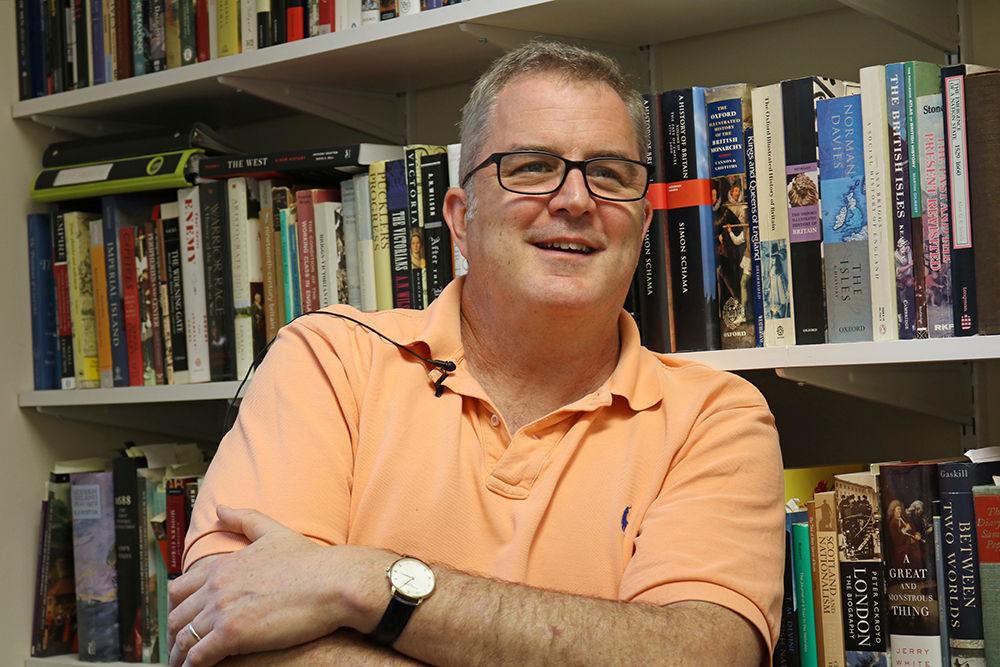In the aftermath that followed Charles Ludington releasing a statement of Brett Kavanaugh’s drinking habits in college, the NC State professor has become nationally recognized for speaking out against the then-Supreme Court nominee.
Charles Ludington, a teaching associate professor in the history department at NC State and former Yale classmate of Kavanaugh, released his statement regarding Kavanaugh to The New York Times on Sept. 30.
Ludington said that he and Kavanaugh were “drinking buddies” mainly in the first two years of college, but he also considered them friends. Ludington played on the Yale basketball team, and according to his statement, Kavanaugh “enjoyed socializing with athletes,” which is how he knew of Kavanaugh’s drinking habits.
“His insistence that no way he was ever to the point where he would forget something – that’s not true,” Ludington said.
In his statement, Ludington referred to Kavanaugh as “a frequent drinker, and a heavy drinker” who could become “belligerent and aggressive” when intoxicated.
“The first thing that irked me about Brett’s testimony was that given the state of his intoxication on frequent occasions, he had no right saying that he could say ‘unequivocally’ he didn’t black out,” Ludington said. “He might think – but that’s the whole point, you don’t remember. And if you get that drunk that often, likelihood is there’s a time that you’ve done some stuff that you don’t remember.”
In his statement, Ludington said that he felt it to be his “civic duty” to come forward with the information he had on Kavanaugh, not because of the sexual assault allegations, but because he lied under oath, primarily regarding his drinking habits.
“He’s auditioning for a job on the Supreme Court, which should hold nine of the most honest, decent people in America,” Ludington said. “When you’re willing to lie about all these little things, I just said, ‘this is absurd.’ I couldn’t sleep for four or five days. Should I do anything about this? Should I say anything? You know, this guy, he’s lying.”
Ludington contacted the FBI regarding the information and proof he could provide them about Kavanaugh’s college drinking habits, but they never asked for an official interview with him.
“In the end, all I had was telephone and email exchanges, but they never called me in for an interview, so it wasn’t much of an experience,” Ludington said. “People on the phone were perfectly courteous and people in the emails were perfectly courteous, but in the end, I guess the FBI didn’t care if he lied in front of the Senate Judiciary Committee and to the American people that were watching.”
Upon releasing the statement, Ludington began receiving hate mail, physical threats and phone calls. He said his voicemail box is still filled with messages regarding his claims against Kavanaugh.
While he never included his association with the university in his statement or other news outlets, Ludington said NC State has been supportive of him since the statement was made public.
“The university, given that I work here, was very supportive in terms of your right to free speech and your right to feel secure in your environment, since my phone number and my email are public access,” Ludington said.
Ludington said he received interview requests from Anderson Cooper, Fox News and Don Lemon, but he only did an interview on Cuomo Primetime with Chris Cuomo. Ludington described the experience as neither good nor bad, but he had no intention of trying to gain fame for the information he had about Kavanaugh.
“I wasn’t ever looking to be thrust in the media limelight, but there you go,” Ludington said. “You see something that’s so blatantly wrong and so you speak up.”








